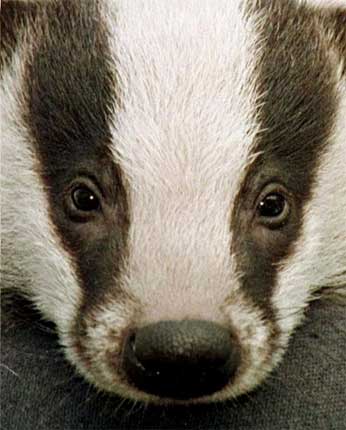To kill or not to kill: the new dilemma facing the Government
The PM must soon rule on whether to let farmers cull badgers – but the choice is not black and white, writes Michael McCarthy

Trouble? you may think that David Cameron has a enough on his plate, but it's about to get worse.
Sometime very soon the Prime Minister has to take a decision – if he hasn't taken it already – which will be immensely unpopular with a large section of British society, and which may even lead to problems of public order.
He has to decide whether or not to kill badgers.
In principle, the decision on whether or not to cull the population of one of Britain's most beloved wild animals – Old Mr Brock, kindly Badger from The Wind in The Willows – as a measure to try to stop the remorseless spread of tuberculosis in cattle, is one for the Department of Environment, Food and Rural Affairs (Defra), and the Environment Secretary, Caroline Spelman. In practice, such are the potential repercussions, the buck stops with the PM.
He will have to sign it off; in essence, he will have to take the decision upon himself, just as he has already done twice this year with two other contentious Defra proposals – the public forests sell-off, and the banning of wild animals in circuses.
Both of these issues were seen as presentational disasters, ending in Government retreats.
The possibility of a third such Defra disaster with badgers is concentrating ministerial minds, not least with the Liberal Democrat members of the Coalition, whose supporters are not temperamentally suited to shooting things.
It will be Mrs Spelman, or perhaps her Farming Minister, Jim Paice, who stands up in the House of Commons to make the announcement, and – if the decision is for a cull – will probably take the immediate flak, but without Mr Cameron's full agreement, it will not happen.
It is a lonely decision for the Prime Minister to take, part of the price you pay for going into politics, for he is damned if he does, and damned if he doesn't.
On the one hand, the advice from scientists is unambiguous: wild badgers constitute a reservoir of bovine TB, and help spread the disease among cattle herds. In the West Country, nearly a quarter of all herds are now infected, with 25,000 animals having to be slaughtered last year, and the problem is getting steadily worse.
The question of what should be done about it is more political than scientific, but the pressure for badgers to be culled from cattle farmers and vets has become overwhelming.
On the other hand, the powerful animal welfare lobby in Britain is resolutely hostile to a cull, and the prospect of thousands of badgers being slaughtered will bring many more wildlife-lovers into vocal opposition.
There is a real chance animal rights activists may attempt to disrupt shooting, which the Home Office is already considering, and there is also the possibility sanctioning a cull might suddenly turn into an unexpected political firestorm, as happened with the forests.
Labour, in the person of the previous Environment Secretary, Hilary Benn, rejected a cull, on the grounds that the outcome would be too uncertain. What has changed? The answer is simple: the ministerial composition of Defra, after last year's general election.
Although the ministry responsible for agriculture has always tended to be farmer-friendly in Britain, it has surely never been quite so close to their interests as it is today. Mrs Spelman herself is an agronomist who used to work for the National Farmers' Union; her all-Tory ministerial team, Jim Paice, Richard Benyon and Lord Henley, are millionaire landowners to a man.
After taking office, the Defra Tories reversed Labour's policy, with Mr Paice announcing proposals last September to let farmers in affected areas shoot badgers at their own expense. Since then, a public consultation has come and gone, and Defra's ministers have reached their formal decision: they want a cull to go ahead.
Now the Cabinet, and Mr Cameron, have to rubber-stamp it. But the nervousness at the top is evident. The matter was due for discussion at cabinet on Thursday of this week, but was taken off the agenda, after senior Liberal Democrat ministers in the Coalition expressed disquiet. The decision is due before the end of the month. Expect fireworks.
Badger Facts
*Badgers are mustelids, that is, they are members of the weasel family – related to stoats, otters and polecats.
*The last survey of badgers in England estimated their numbers at 190,000, with 250,000 in Britain as a whole, but 20 years of warm winters have seen a big increase in population, perhaps to 400,000. No-one really knows.
*Badgers are omnivores – they eat a wide range of animals and plants, from beetles and baby rabbits to berries, although their single most important food is eathworms. They will also eat hedgehogs.
*Badgers are protected by their own Act of Parliament, the Protection of Badgers Act, 1992.
Subscribe to Independent Premium to bookmark this article
Want to bookmark your favourite articles and stories to read or reference later? Start your Independent Premium subscription today.

Join our commenting forum
Join thought-provoking conversations, follow other Independent readers and see their replies